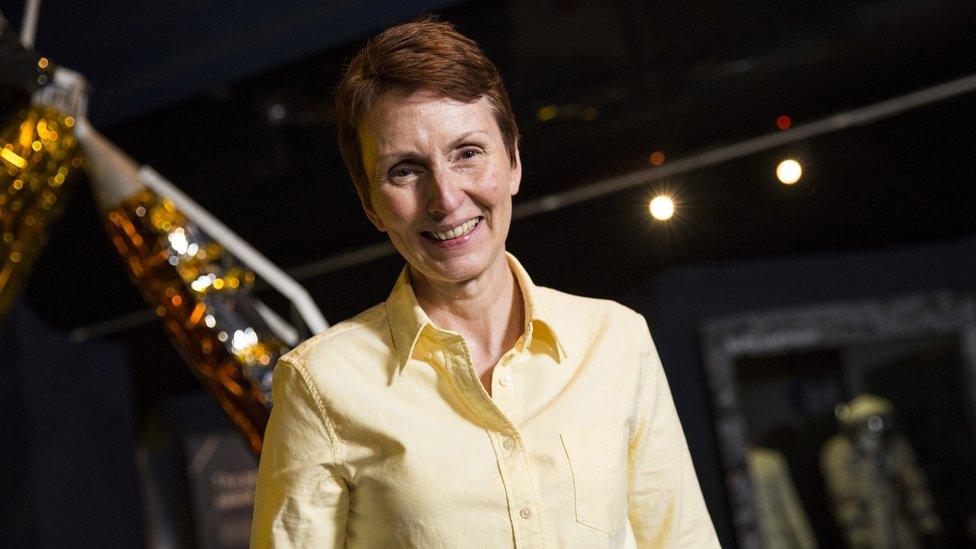First Briton in space takes STEM message to pupils
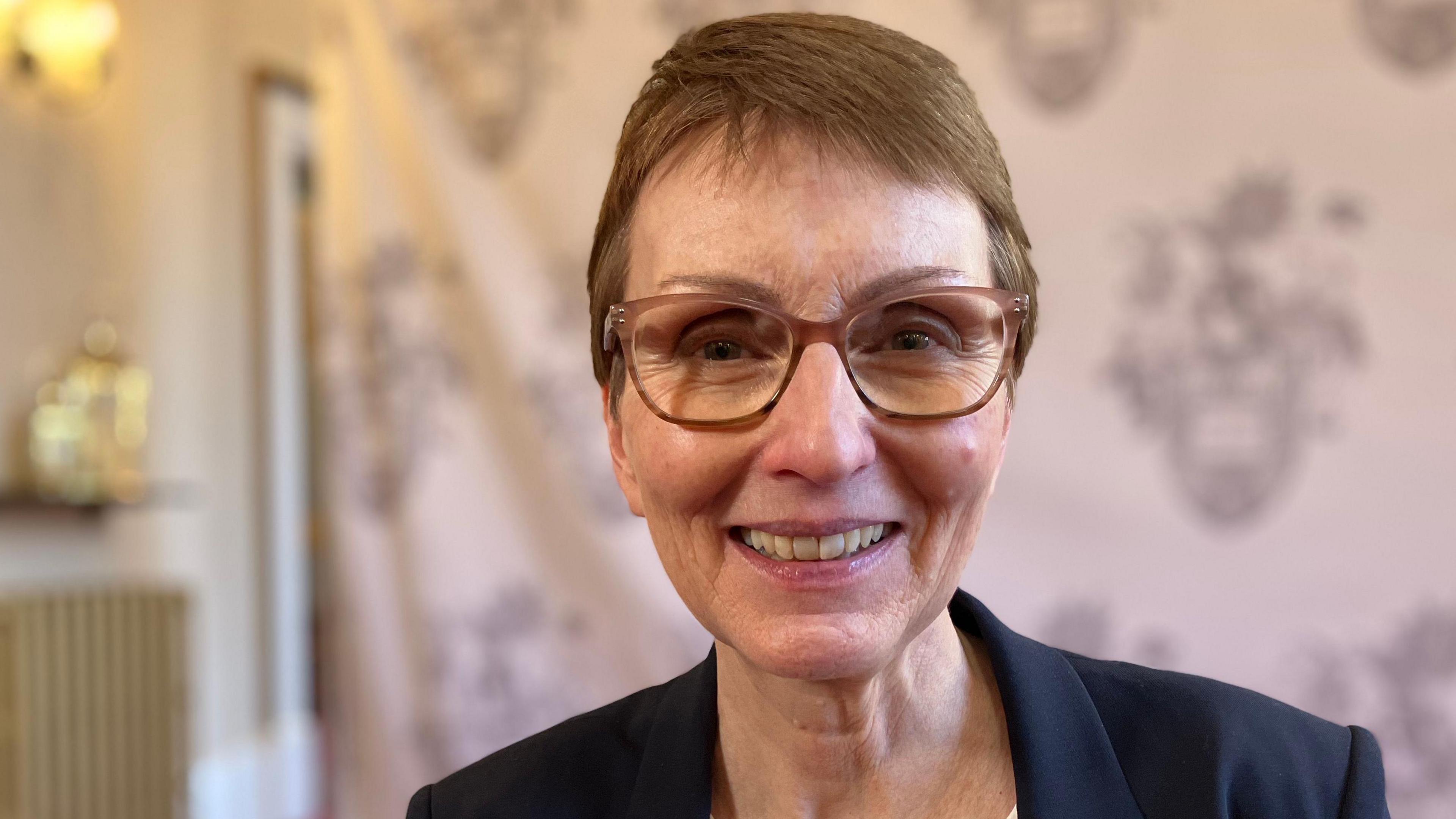
Helen Sharman was 27 when she joined the Russian Soyuz TM-12 mission
- Published
The first Briton to go into space is speaking to schoolchildren about the opportunities created by studying scientific subjects.
Research chemist Helen Sharman spent eight days in space in 1991, becoming the first woman to visit the Mir Space Station.
Now an ambassador for Imperial College London, she will be telling pupils at St Edward's School in Poole, Dorset, how chemistry led to her historic mission.
She said the pace of innovation meant science, technology, engineering and mathematics (STEM) subjects would lead to careers that don't yet exist.
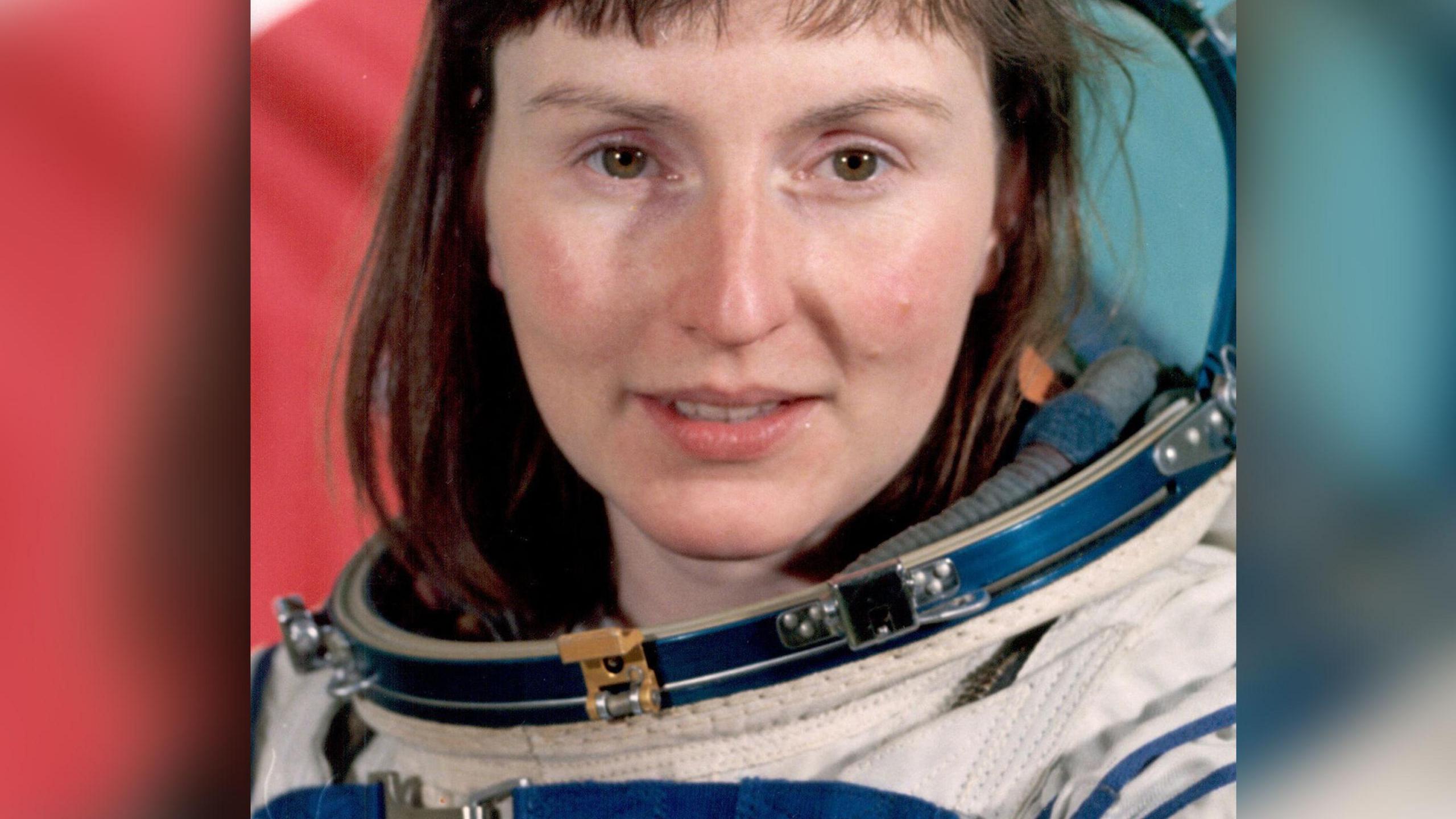
Helen Sharman having a chemistry background helped her application
Ms Sharman told BBC Radio Solent that her space mission seemed "like it was yesterday".
She said: "It's not so much about what I did in space - the country needs more people studying those STEM subjects and space is a way of communicating those exciting opportunities.
"Space was never an option when I was at school - it was for the Americans and the Russians - not people like me.
"I really struggled to understand what I should study after school and decided to take a STEM subject, just to keep my options open."
Ms Sharman was 27 when she joined the Russian Soyuz TM-12 mission after being selected from nearly 13,000 British applicants.
She said: "I was able to apply for it because I had chemistry as my education.
"Had I gone into something else, I wouldn't have even got on to the starting blocks for that selection process."
During Tuesday's visit to the comprehensive school, she will talk to older pupils about their future careers.
She said: "Technology is changing all the time and it's changing what jobs there are available.
"We think half of all the jobs young people will have in their lifetimes don't exist yet."
Get in touch
Do you have a story BBC Dorset should cover?
You can follow BBC Dorset on Facebook, external, X (Twitter), external, or Instagram, external.
Related topics
- Published17 March 2024
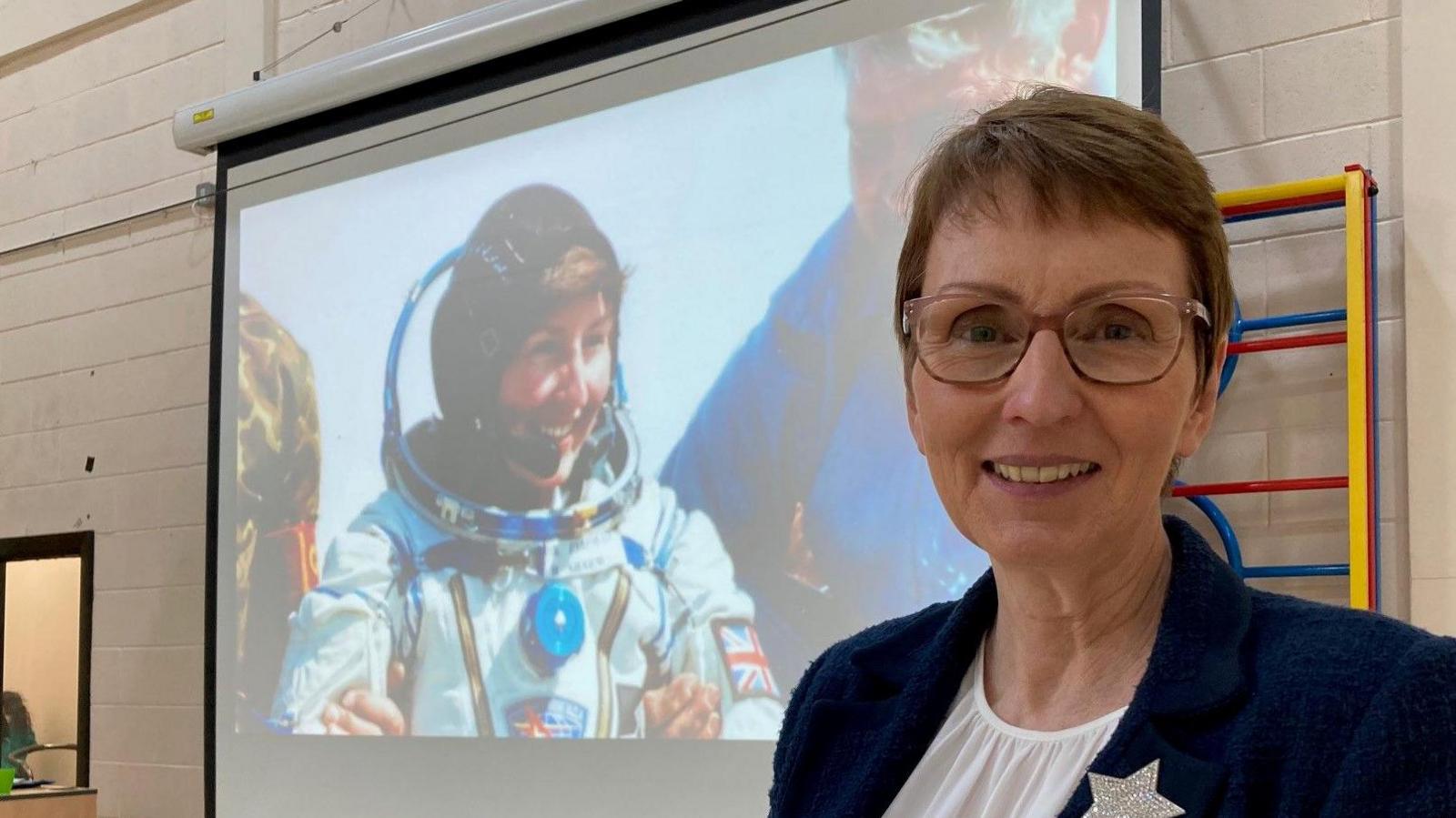
- Published19 January 2024
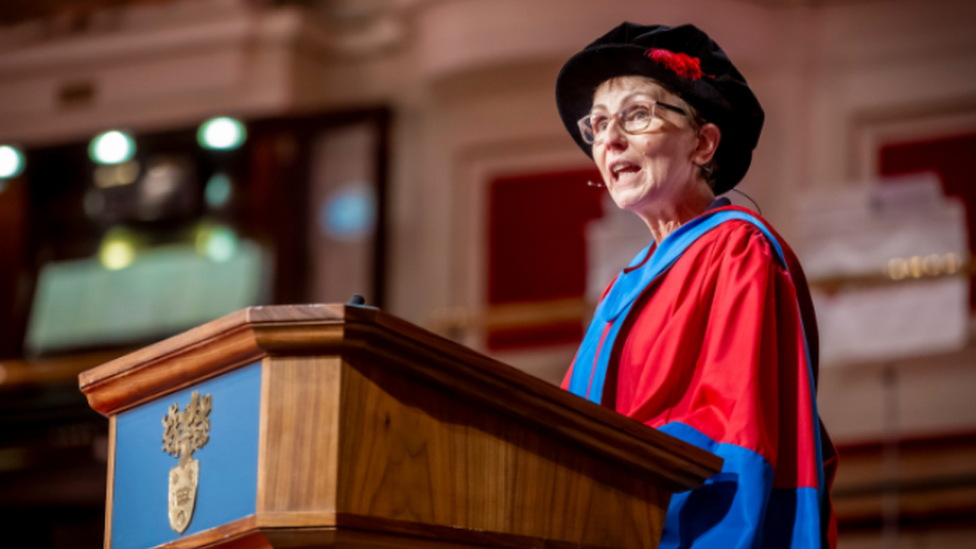
- Published6 January 2020
